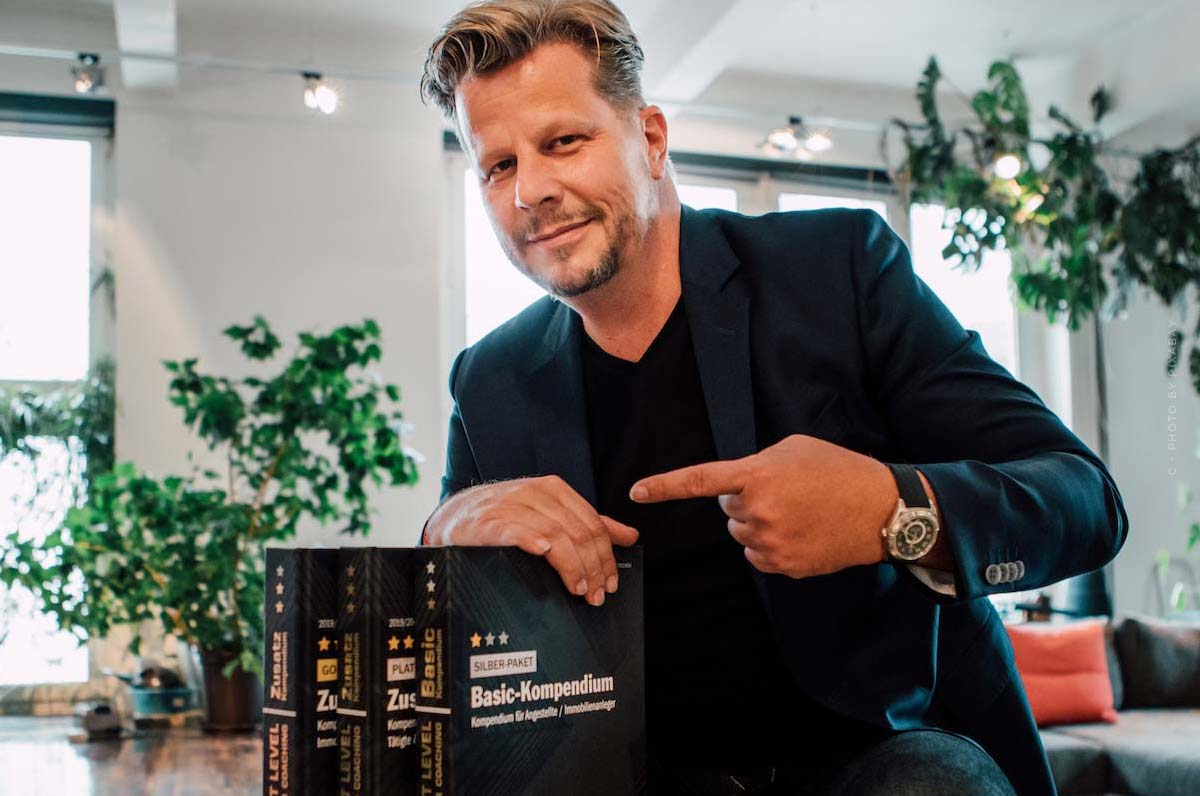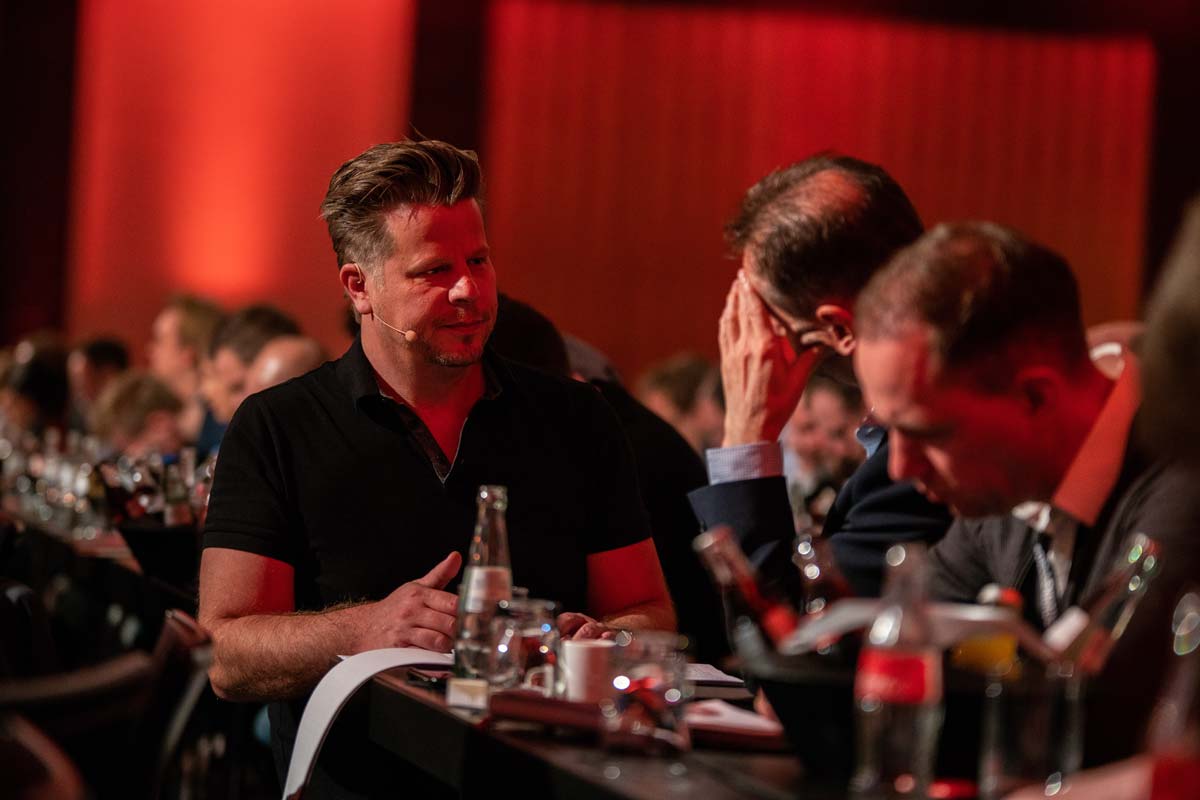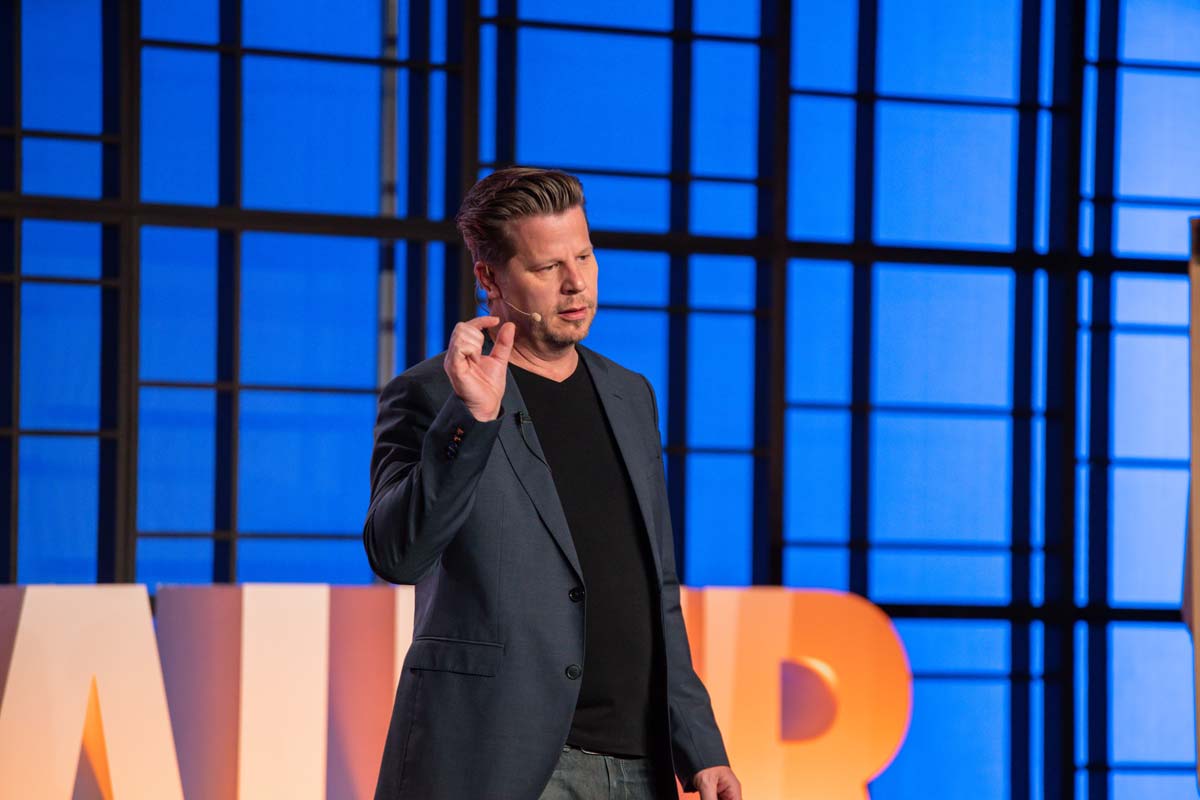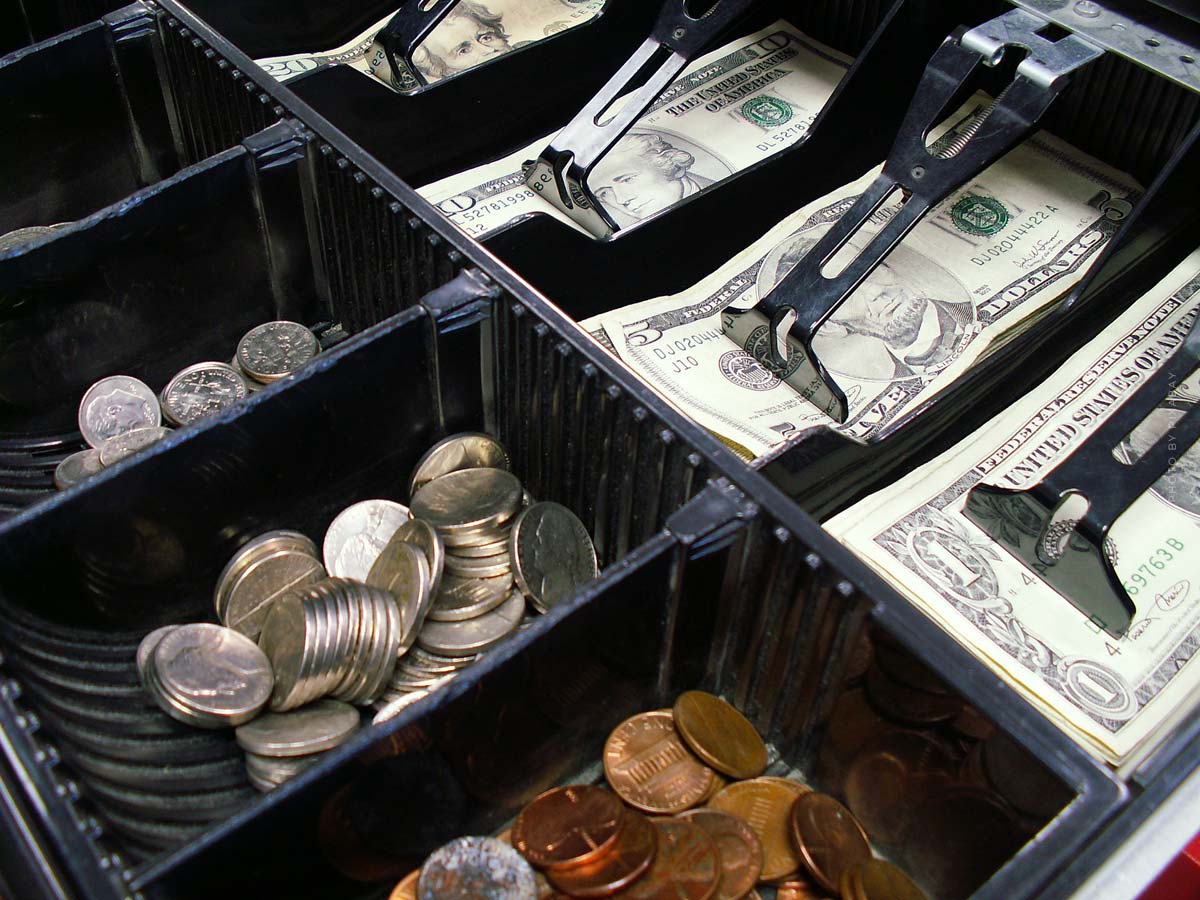Money Magnet, Money Laws and Account Structure: Financial Freedom – Strategies by Alex Fischer
Money magnet, money laws and account structure – young entrepreneurs watch out! Have you ever heard of the podcast “Richer than the Geissens”? Especially the consequences around money magnet, money laws and account structure I found extremely inspiring, so much so that I had to write this review! If you are at the beginning and have not yet built up enough equity to buy your first property, then “Richer than the Geissens” by real estate millionaire Alex Fischer shows you how to proceed strategically. From working on your own mindset, so that you know what goals you are pursuing – from money magnets, money laws and account structure to real insights, for example real estate as an investment tool. Before I tell you a little about the consequences of money magnet, money laws and account structure, here is a short look at the book, or the free podcast for the book “Richer than the Geissens”.
Podcast – “Richer than the Geissens” now for free!
Important: Currently the book is only available in Germany! I speak German and discovered this book or audio book two weeks ago. Even if you wouldn’t understand a word in the podcast, I wanted to introduce some of the methods and strategies to you!
“Richer than the Geissens” by Alex Fischer is one of the most successful business books in Germany. 200,000 readers, top rankings on Amazon (currently 3rd place in Success for Job & Career), speak for themselves. Now comes the absolute highlight: the audio book is now available for free on Spotify and iTunes! Your chance to learn the strategies and principles that made the author successful. Author Alex Fischer has earned millions himself with real estate and still holds over 20,000 square meters of space in and around Düsseldorf. He started with 0 Euro equity.
Nothing comes by chance. Alex Fischer himself started with 0 Euro equity. He grew up as the son of two teachers. So he himself had no source of money worth mentioning. He gained experience. More and more and more. His great passion: passing on knowledge to the next generation of entrepreneurs.
For example through the podcast on “Richer than the Geissens”, which he now makes available free of charge in the two most popular apps Spotify and iTunes. Your and my chance to learn something for the future.
The audio book contains an incredible amount of know-how, principles, strategies, examples and procedures, as well as checklists and questions that you absolutely must ask yourself if you want to be successful in life and in your job. In the first part I was especially impressed by these 3 learnings, which I want to share with you here! Briefly explained, the money magnet ensures that you automatically attract money. The money laws help you to make decisions and through the account structure you create more and more financial freedom through reserves and protect yourself from unnecessary expenses. These and many more learnings you get in the first of three parts.
“RADG” at a glance: Contents and methods
Before we take a closer look at the tips, here’s a quick reminder for you of what makes the book and podcast so special. The book and the free audio book at a glance, it contains (excerpt from Amazon):
- 43 timeless laws of success to get off to a maximum start
- 14 concrete steps to become a real estate millionaire in just five years
- Principles and tools to build a freedom and money machine
- The real reason why money alone does not make you happy
- The 7-contact rule for an extensive network of experts
- Your 1st property: Effective strategies to build up equity and double cash flow
- Podcast for free
- Member area free of charge
“Money and prosperity love order” – this quote ends Edition 26: An excerpt from own money laws from “Richer than the Geissens”. In order to make this possible, you create a fixed account system which, in case of doubt, will rather calculate you poorer than too rich.
In the mindset of everyone is anchored, “Money always goes away”. How can you change your mindset? Basically it is about a positive mindset in the implementation of your goals. What do people who are happier than average have in common? They take their life, their work, but also their relationships playfully, according to Alex Fischer. Why were Alex Fischer, Boris Becker, Michael Schumacher but also Reinhold Messner himself sad, especially in their moments of absolute success? Tip: Listen to episode 7: Make money (really) happy with the whole story! “It was success that ended the game.” Repeating this game is boring and does not give the same satisfaction anymore. Felt is only going downhill from now on. “Only” making more money doesn’t make you happy anymore. The big question: What do you enjoy? What makes you happy?
From Episode 25: Building instructions for a money magnet we slowly move on to the topic “Making money”. I find this episode so special because it contains a “simple” means. Here is a small insight into this episode: Money magnet. With the central question, how does the money magnet work? What does a money magnet change in your life?
How does the money magnet work?
Take 10% of your income (private) or 10% of your contribution margin (entrepreneur) and put it into a savings account. You never touch this account. In principle, the money magnet is so simple that it is slightly underestimated according to Alex Fischer. Error 2: It is often destroyed again. But tests and success reports have proven the success thousands of times. In order for your money magnet to work, you must follow these 3 rules:
- Take 10% of your income (private) or 10% of your contribution margin (entrepreneur) and put it into a savings account.
- You never touch this account!
- Never! Never!
Alex Fischer explains in detail with stories from his own life why this money magnet has changed everything for him. But he also explains that it’s not about this account making you rich. The account ensures that “more and more money is attracted”.
This account changes the mindset of people.
Account access? Fatal error
Alex Fischer talks in the podcast about his first money magnet, which he set up, directly after a trip to the USA, where he himself was sensitized to this topic. Half a year later he made a fatal mistake! Spoilers: Alex Fischer threw Pin and Tan from the account into the shredder.
Which mistake Alex Fischer made and why he threw away the Pin and Tan for the money magnet, you can hear in Following 25: Building instructions for a money magnet.
Excursion: contribution margin (10% for companies)
.
Alex Fischer advises entrepreneurs to pay 10% of the contribution margin into the money magnets. Some will now ask themselves: contribution margin, what was that exactly?
The contribution margin (DB) comes from cost and performance accounting (KLR). The contribution margin itself is the difference between revenues and variable costs. It indicates how much a particular product contributes to covering fixed costs. You can use this key figure, for example, to calculate the sales quantity from which the company makes a profit – the break-even point.
Calculation example
As a self-employed person you will earn 10,000 euros per month:
revenue: 10.000 Euro
– variable costs: 4,000 Euro (e.g. raw materials)
= Contribution margin: 6,000 Euro
– Fixed costs: 1,500 euros (e.g. rent, insurance)
= Result: 4.500 Euro
Here once again the important key figures:
Contribution margin, variable and fixed costs – example
- Contribution margin – difference between revenues and variable costs
- Variable costs – What counts as variable costs? Variable costs are so-called variable costs that increase or decrease depending on the level of employment or the production volume of a company – example: raw materials for production
- Fixed costs – What counts as fixed costs? Fixed costs arise and are independent of the production or sales volume – example: employees, rent, insurance, etc.
Back to the topic: How do you build a money magnet. Remember, there are 2 mistakes. Error 1: The money magnet is so simple that it is easily underestimated. Error 2: It is often destroyed again.
Money laws: Account, reserves and expenses
In Edition 26: An excerpt from my monetary laws Alex Fischer reveals several of his principles. In the podcast and in the book you will find all tips in detail with best practices by Alex Fischer himself. Tip! For the following tips there are Excel tables in the members area on the website of Alex Fischer. Central is:
Calculate poor!
Why calculate poor? You don’t spend money you don’t plan for. Simple but brilliant! That way you don’t make any commitments that you can’t afford to make on closer inspection.
You will now learn how to “calculate poor” automatically and at the same time build up reserves, keyword “financial freedom”.
Account structure and allocation form
The insight into the account structure is extremely interesting. An allotment form. Simplified described you set up a pure purchase account, all revenues flow into this account. From this initial account you distribute reserves according to a certain key (allocation form) to your created subcounts. The account model (subaccounts) must of course be adapted to the individual needs.
- All incoming cash account – All incoming, no outgoing to external accounts, only distribution to internal sub-accounts
- Each receipt is entered on the allotment form – All distribution keys are stored as percentages
- Outgoing account – Last item in the distribution key
This concept ensures that you no longer have the feeling that money is “taken away” from you.
According to Alex Fischer, the undernots are individually invested. A finished model will look like this, for example:
- “Taboo reserve account” – The “money magnet” described above with 10%
- Reserves for advertising – Approximately 10-15% of gross income
- Risk account – legal actions, liability cases, etc.
- … listen to the episode in detail, in Episode 26: An excerpt from my monetary laws. Believe me, you’ll be taking over the model immediately!
The adaptation and modification to individual needs comes in the second step. This construct means that no money is spent that belongs to someone else, for example taxes. It makes spending honest and transparent and you can counteract unforeseeable expenses.
Taxes: 50%+ do not belong to you!
Entrepreneurs but also self-employed and workers know or better should know: 100,000 euros is only 50,000 euros. Because round about 50% do not belong to you, but are taxes. 19% (in Germany) alone are already gone for sales tax. In addition there is income tax or also trade tax. In the end, more than 50% always belong to the tax office.
So if you spend 50.000 Euro for purchases, etc., then that was already too much! Wow. Have you ever considered it like this in your company?
But if you create reserves with the reserve form, you will not get into an unfavorable situation, because you will only calculate additional investments or expenses with your initial account.
Example: Fuel oil
The big goal of “Richer than the Geissens” is: “In 5 years without equity to become a real estate millionaire”. Accordingly, the first best practice examples from the real estate world are slowly emerging. For example in relation to expenditure for fuel oil, spread over 12 months.
Every month tenants transfer their fixed amounts for heating oil. In summer, however, there are no costs for heating oil, only in winter. Without reserves, the money could be mistakenly spent by the property owner. With the distribution key (reserves) from the reserve form, there would be no such danger, because our property owner would automatically have formed reserves and would know about his exact financial situation instead of making decisions based on missing information.
You want more and deeper information about money, happiness and mindset? You can find more on the Youtube channel. There are also many lectures of mine included, which were published on foreign channels. Now to: Alex Fischer Youtube.
Account structure and allotment form, another tool out of so many that you learn from Alex Fischer in the podcast of “Richer than the Geissens” in Episode 26: An excerpt from my money laws.
Toolbox: The consequence for self-assurance
Now part 2 (of 3) starts in the podcast, “The tools as manager of your life”. Parts 1 and 2 of “Richer than the Geissens” are the basis for happy entrepreneurs. Like in part 1, it is again about a lot of know how, principles and guiding principles for your life. The start is Order 31: Your toolbox.
Alex Fischer also had moments when it seemed as if everyone else was passing him by, understanding things faster and putting them into practice.
When he complained about this in a mentor talk, he was told by his mentor that it’s not that he “can’t do something”, he just doesn’t have the right tools yet. Successful people simply have a better toolbox and they know how to use the tools.
Once again an ingenious basic rule that takes complexity out of constant struggle. So for me, too, this means that above all I need the right tools, the knowledge of how to use them and of course practice, practice, practice. The awareness that there are the right tools for all problems is, according to Alex Fischer, important for developing oneself.
Such tools exist in every business.
What I also like about the whole podcast are the super practical examples, like this one about the toolbox of 5 electricians with a task.
5 electricians, one task: Who will win?
The task for the appointed electricians is the same (regardless of the exact activity). The first electrician comes without a tool box, the second has an incomplete one, the third has a complete one, but he does not know what the tools are for. The fourth brings a complete toolbox, knows his tools but does not know how to use them, he lacks practice. The fifth has a complete toolbox, knows what the tools are for and has practice in using them.
Who will do the job best?
Tools for entrepreneurs
Such tools are available in every business, as I said before. They are extremely versatile. You have tools for:
- Annual and target planning,
- Time management,
- Strategic planning,
- Find, select and bind the right employees,
- Generate contacts and win them over,
- Settle the dispute and prevent it beforehand,
- Marketing and sales
So if you have difficulties in an area such as “annual and target planning” or “generating contacts”, it is because you :
- You’re not aware that there are tools for this.
- You don’t have the right tool.
- Don’t know how to use the tool
- Have not yet had enough practice in using the tool.
Tools for private persons
Being the “entrepreneur of your life” is not only about business, there are much more basic tools in your private life, like:
- Tools for learning and evaluation,
- Tools to “beat your inner bastard”,
- Financially successful,
- Tools to lead a great and successful relationship,
- Etc.
From money magnets to toolboxes: In “Richer than the Geissens” you learn the setting for a successful and happy life. You can find these and other tools by Alex Fischer in Engine 31: Your toolbox.
Tip! On the website of Alex Fischer you can find hundreds of videos about the different tools, in the different sections! Here you can go directly to the member area of Alex Fischer.
Alex Fischer: Richer than the Geissens
“In 5 years without equity to become a real estate millionaire” – here you get the right and important tools for a happier and fulfilled life, also through financial freedom. Alex Fischer is living it up, with real estate he himself has already provided for a long time. His focus is on passing on knowledge, strategies and success stories. An extremely inspiring audio book. You want more Know How? Become a part of the Alex Fischer Community. or watch direct and free videos from Alex Fischer on Youtube.
“Richer than the Geissens”: Book and audio book
With over 200,000 readers, “Richer than the Geissens” is mega successful, for good reason. It is also in the top 100 at Amazon! In a nutshell, you get 43 timeless laws of success with which you can become more successful financially, professionally and privately. You learn to reach your goals, to “materialize” them (what this means, you learn in the book). You will receive exact step-by-step instructions for your own personal financial freedom. This way you avoid really frustrating mistakes right at the beginning. As a private person and / or as an entrepreneur, you learn from Alex Fischer how to avoid these fatal mistakes and at the same time follow your passion – every day! The book contains hundreds of learnings that will help you to live a happier and more fulfilled life. Best of all, you can get the audio book for free on Spotify and iTunes!














